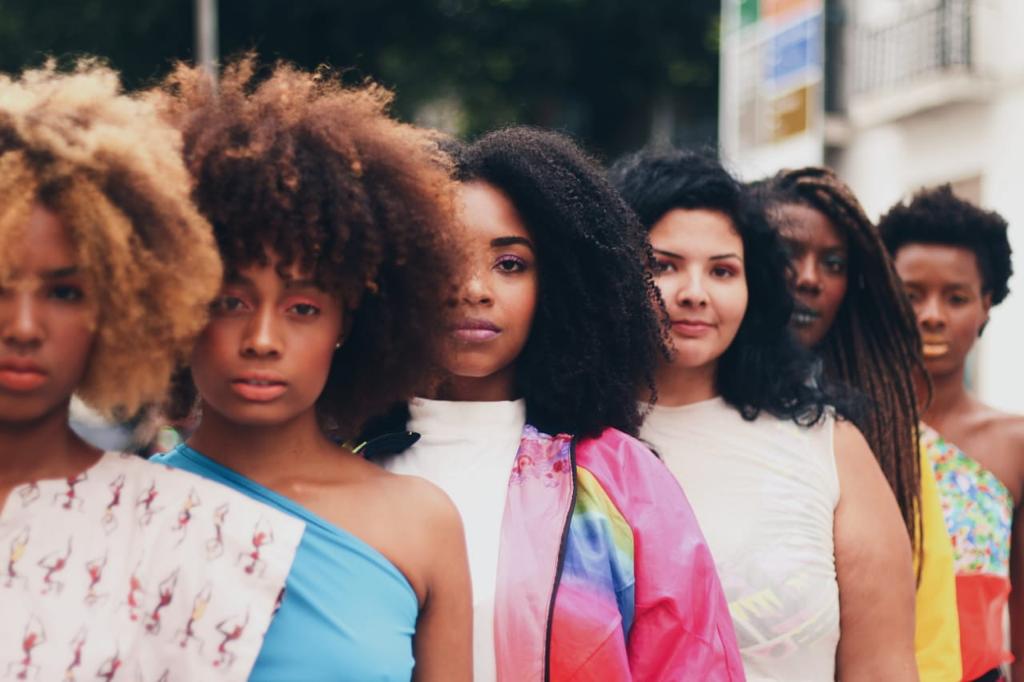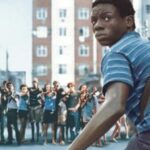Afro Brazilian hairstyle in the Favelas of Rio de Janeiro Identity and Style

In the labyrinths of color and culture of Rio de Janeiro’s favelas, one hairstyle has flourished as a vibrant expression of identity and pride: the Afro hairstyle. More than a simple aesthetic choice, the afro hairstyle is a symbol of resistance, self-acceptance and celebration of the African heritage that permeates the cultural roots of communities.
1 – Afro Brazilian hairstyle – Boxer braids
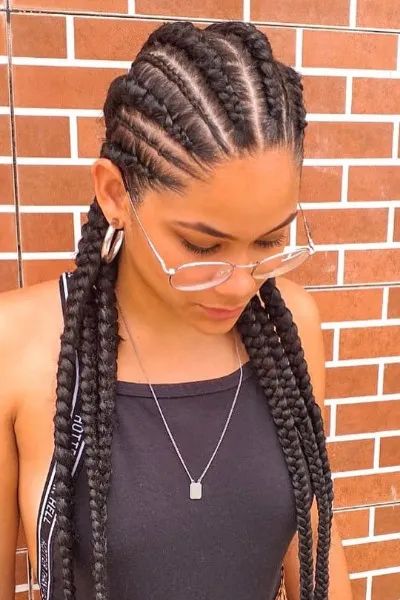
This style is a popular choice among women in the favelas of Rio de Janeiro due to its practicality and durability. Boxer braids are characterized by even sections of hair that are braided from the roots to the ends. This Afro Brazilian hairstyle is prized for its ability to keep hair tidy and protected for weeks, which is especially important in areas where resources may be limited and frequent salon visits may not be a viable option. Additionally, boxer braids offer versatility as they can be worn loose or bundled into different styles, such as a ponytail, bun, or braid.
2 – Brazilian Afro Hairstyle – Curled Hair Bun
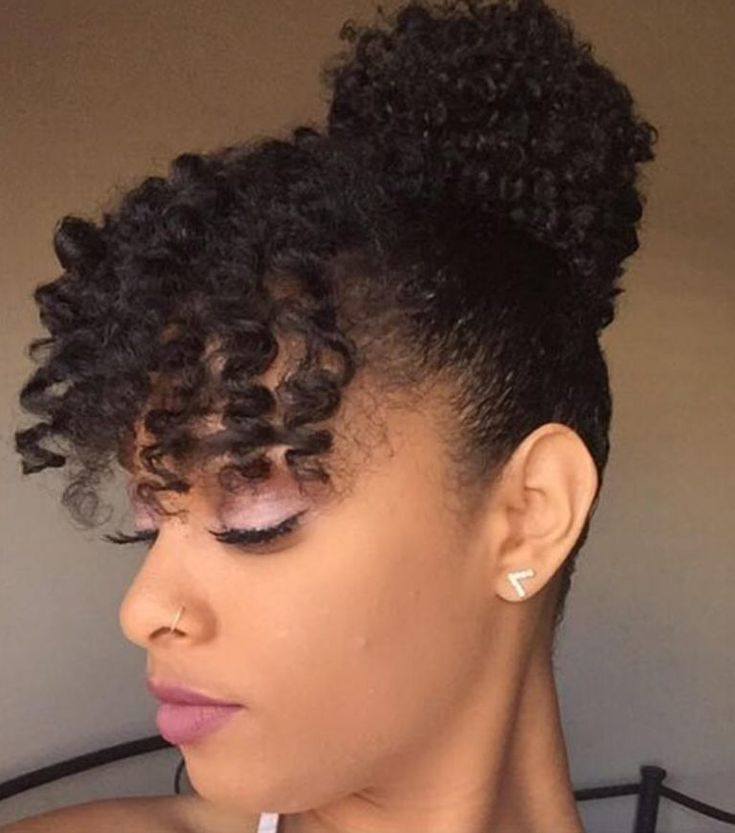
This Afro Brazilian hairstyle is an elegant and sophisticated choice that is perfect for special occasions. Hair is gathered into a high or low bun and then twisted or wrapped around the base to create a voluminous, textured look. This style is prized for its ability to add height and drama to the top of the head, creating a striking and impactful silhouette. The curled hair bun can be customized with accessories such as flowers, barrettes or bands, adding a touch of shine and glamor to the look.
3 – Brazilian Afro hairstyle – Dreadlocks (Dreads)
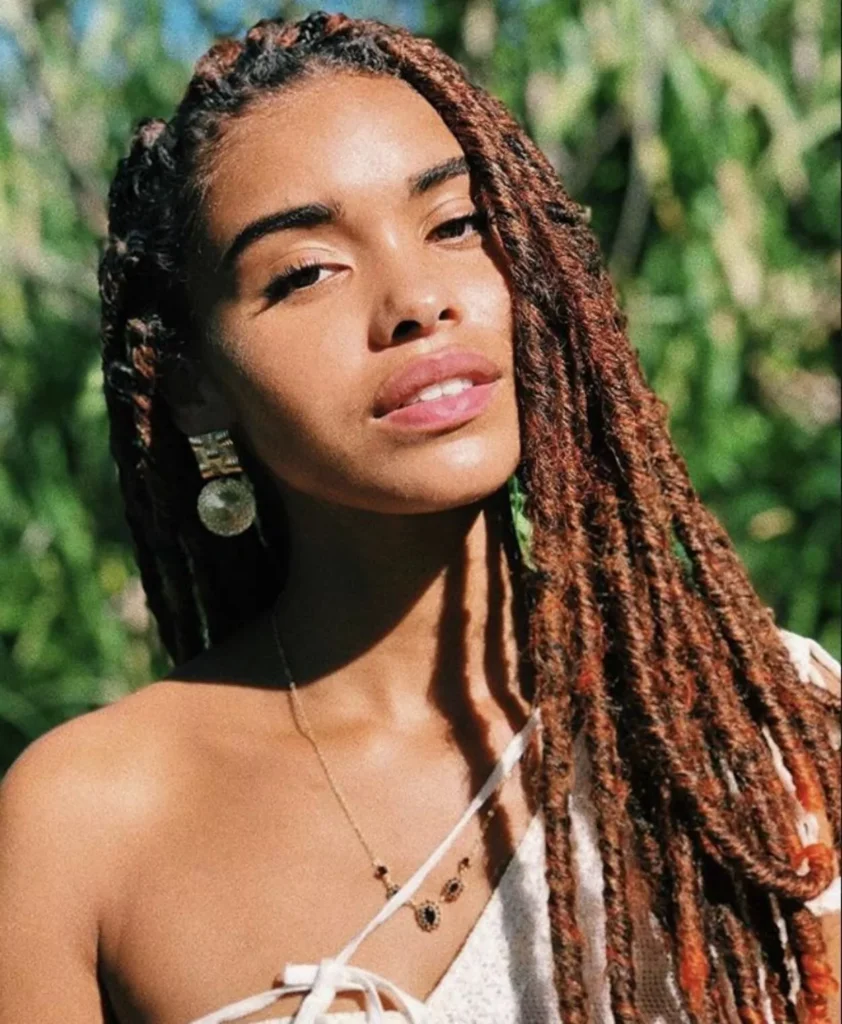
Dreadlocks are a bold and distinctive style choice for many women in Rio de Janeiro’s favelas. This Afro Brazilian hairstyle, In addition to its unique aesthetic, dreadlocks are valued for their ease of maintenance and longevity. They represent a connection to African roots and an affirmation of cultural identity.
4 – Brazilian Afro hairstyle – Bun (Afro Puff)
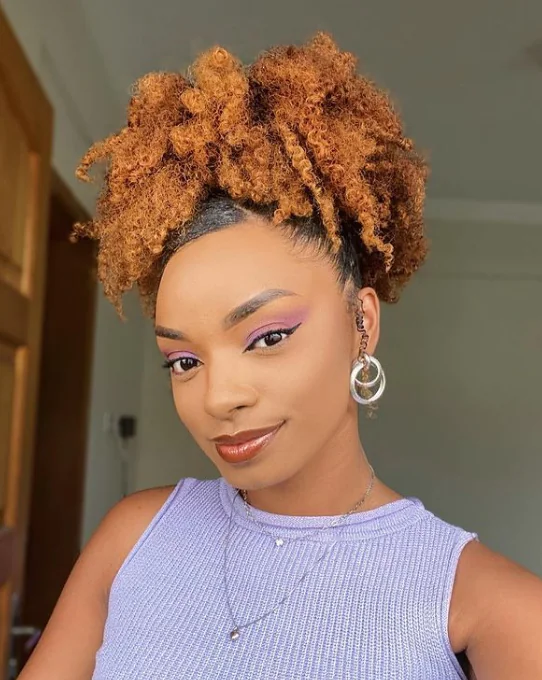
The Afro Puff is a practical and elegant style that is popular among women in the favelas of Rio de Janeiro. It offers versatility, allowing women to create different looks with ease. The Afro Brazilian Puff hairstyle is often used as a transitional style, allowing women to let their hair grow out naturally while maintaining a neat and elegant appearance.
5 – Brazilian Afro hairstyle – Twists
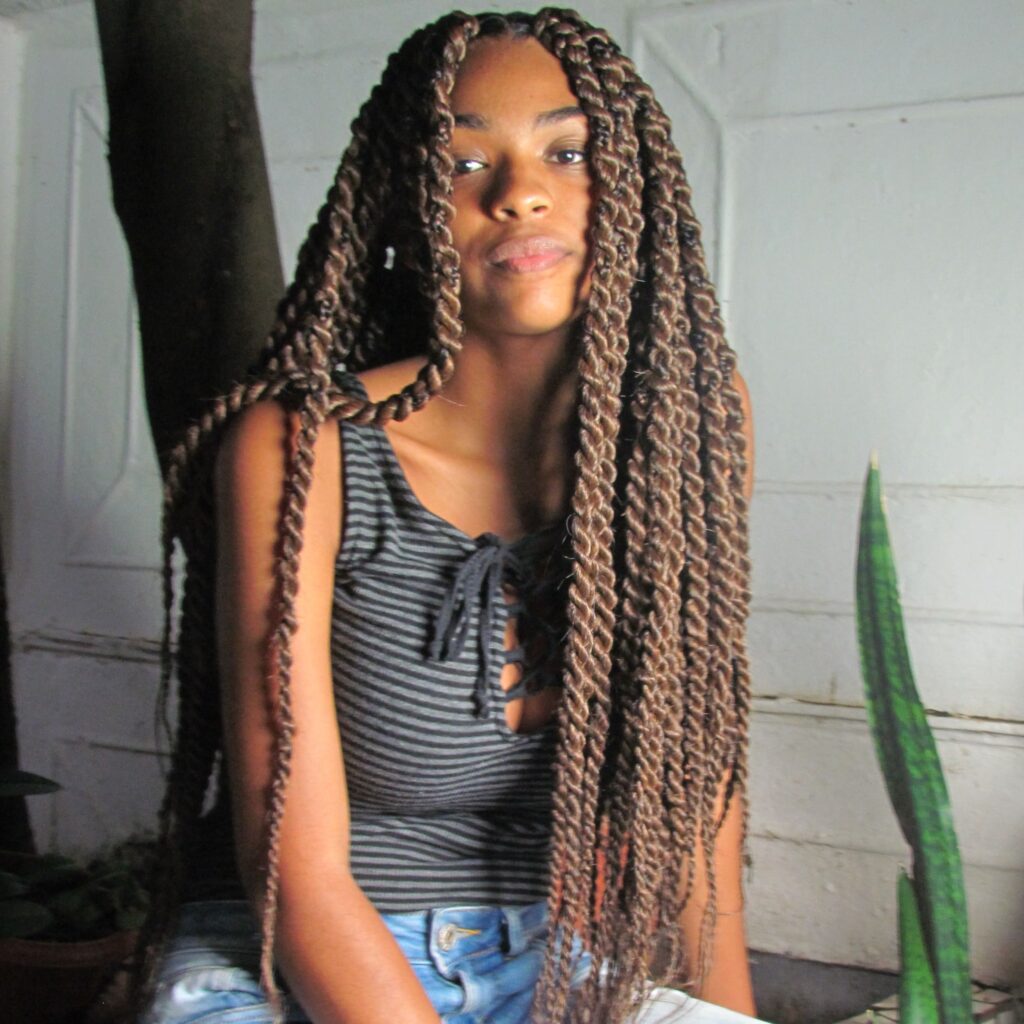
Twists are a popular choice for women who want a low-maintenance, versatile style. They offer hair protection from breakage and damage, while still allowing for a sleek, textured look. Brazilian Afro hairstyle twists are often used as a protective style to promote healthy hair growth.
6 – Afro Brazilian hairstyle – Cornrows (Built-in braids)
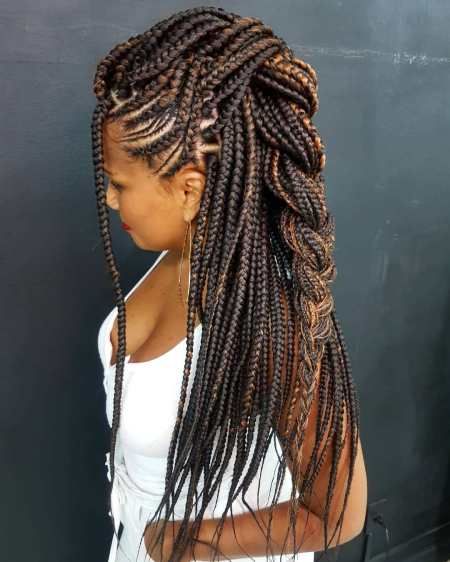
Braids are a practical and durable option for many women in the favelas of Rio de Janeiro. This Afro Brazilian hairstyle offers hair protection against damage and breakage, as well as keeping hair tidy and stylish for long periods of time. Braids are also a form of cultural expression, allowing women to showcase their creativity and individuality.
7 – Brazilian Afro hairstyle – Braided Updo (Braided Bun)
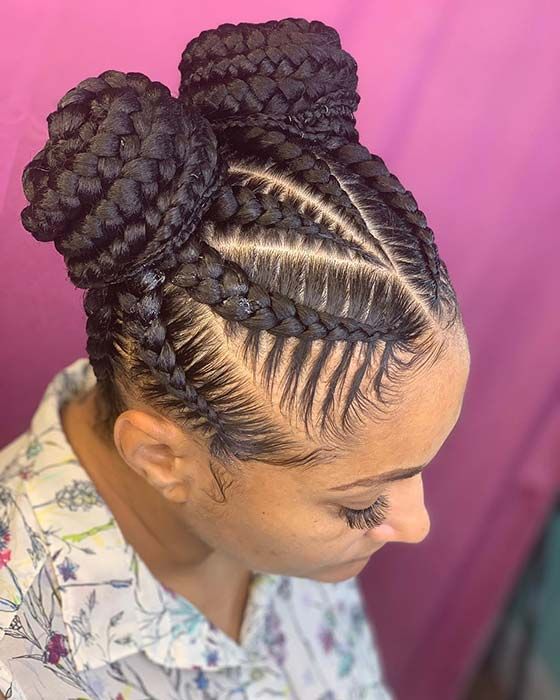
The braided bun is an elegant and sophisticated option for women who want a style that is suitable for special occasions. This Afro Brazilian hairstyle offers versatility, allowing women to create different looks with ease. The braided bun is often used as a statement style, allowing women to stand out from the crowd and express their individuality.
In summary, afro hairstyles such as braids, dreads, afro puffs and twists offer a range of significant benefits to women in the favelas of Rio de Janeiro. In addition to expressing ethnic pride and cultural identity, these styles provide hair protection from external damage, promote healthy hair growth, and offer styling versatility. These hairstyles not only reflect the rich diversity of Afro-Brazilian heritage, but they also empower women, allowing them to face everyday life with confidence and style. By adopting and celebrating these hairstyles, favela women are reaffirming their natural beauty and their connection to their cultural roots, while challenging harmful stereotypes and Eurocentric beauty standards.

